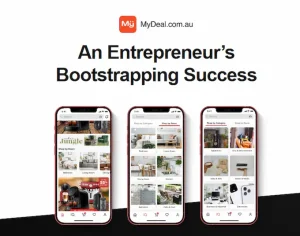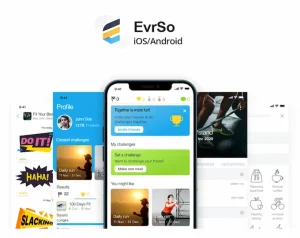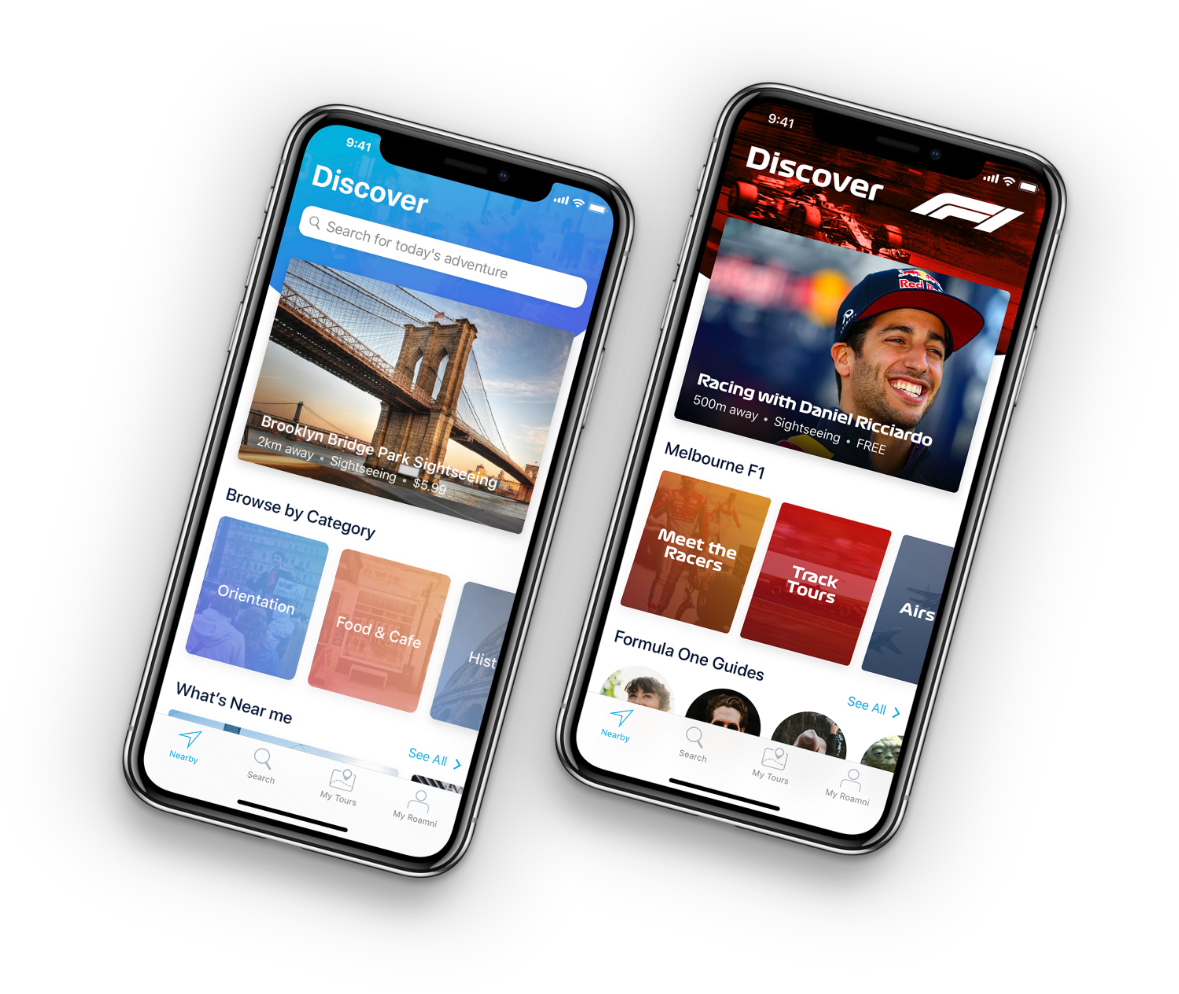How to Find a Business Mentor to Save Time and Money

In most major economies, around 50% surveyed don’t start a business for fear of failure.
And I don’t blame them. After all, it can be scary to waste time and resources setting up or growing your business.
That’s why savvy business owners seek mentors.
Whether you’re an actual or budding business owner, read this article to learn how to find a business mentor who can guide you and maximize your growth potential.
To give you the most comprehensive knowledge on the subject, I will talk about:
- What a business mentor is
- How this type of mentor saves you time and money when starting or scaling your business
- Characteristics to look out for in a business mentor
- Local and global sources of business mentorship
Let’s begin!
What is a business mentor?
A business mentor is a seasoned industry leader who provides ongoing guidance and support as you start or grow your business. This person can offer broad advice on various aspects of your business, from strategic decisions to hiring practices, helping you avoid common pitfalls and navigate difficult situations.
Some famous mentors in business history include investment expert Warren Buffett and Apple founder Steve Jobs. According to Microsoft visionary Bill Gates, Buffett taught him how to manage his time by prioritizing certain people and tasks. Meanwhile, Facebook creator Mark Zuckerberg sought Jobs’ advice during the early stages of his social media company.
Is a business mentor the same as a business consultant?
A business consultant typically addresses specific challenges or projects, while a mentor builds a long-term relationship with you. Mentors are more invested in the sustainable success of your business.
Using platforms like Qooper can help sustain such relationships by providing structured mentorship programs that support long-term engagement and development. They are also more likely to help you develop mindsets instead of focusing on hard skills like management or administration.
Business consultants also typically charge for their services, while mentors may opt to provide advice for free as a form of giving back to the community.
How does a business mentor help me save time and money?
A business mentor has the uncanny ability to shrink time and squeeze more out of every penny. Their extensive knowledge and experience can help you get the most out of your resources in two important phases: starting your business and scaling your organization.
Conserving resources while starting your business
While you’re laying the foundations of your business, mentorship will provide you with a blueprint on how to move forward with fewer mistakes. It’s because your mentor will tell you what works (and won’t work). Let me explain further:
- Prevention of errors. While entrepreneurs are often used to working independently, a mentor offers guidance drawn from their own experiences. These industry-based insights can help you avoid common pitfalls and mistakes, which prevents costly errors that could set your business back.
- Emotional support. Mentors provide business advice and encouragement, helping you stay motivated and focused on your goals. Around 50% of small and medium-scale business owners report that stress and mental health are affecting their business’s success. Therefore, having a mentor can help you conserve your psychological resources as you get your business off the ground.
Stretching resources while scaling your organization
What if I tell you mentors can multiply cash and accelerate time?
You heard that right. Having a mentor in your corner can help you do more with your money and time as you expand your business. In particular, business mentors provide the following advantages:
- Free advice. Mentors often don’t charge for their services as a way to give back, unlike consultants or coaches who charge for their time. This can significantly reduce your costs, allowing you to invest more in other areas of your business.
- Network effects. Network effects normally indicate how products and services increase in value the more people use them. With business mentorship, network effects create value in a slightly different way. A mentor often has a network of other equally experienced experts, giving you access to the mentorship most suitable to your needs.
- Clarity amidst uncertainty. Whether you’re opening new branches, adding product lines, or servicing more customers, business expansion is a journey to the unknown. A mentor who has been through similar experiences can help you navigate these uncertainties in business results more efficiently.
Uncertainty is a monster that businesses big or small face. Around 2020, established ecommerce tycoon Sean Senvirtne faced the uncertainty of a growing mobile-based market. Seeing the rise in smartphone-based ecommerce transactions, he enlisted our expertise in mobile app development to future-proof and expand MyDeal, his web-based digital marketplace.
The result?
Within the same year, MyDeal grew into a business worth around $160 million, thanks in part to the mobile app we developed for Sean.
What worked for Sean might also work for your business. To explore the possibilities, book a free consultation with us and learn how mentorship works with mobile app development to maintain business competitiveness.

Now that you know the value of mentorship, it’s time to learn how to find a business mentor. Before I discuss where you can find expert guidance for your business, let’s look at the ideal traits mentors should have to ensure you get the best results.
Characteristics of the ideal mentor
The best possible mentor is not just competent. They are also compatible with you and your ways of working.
That’s why when looking for the right business mentor, check whether or not they have these traits:
- Experience and adaptability. Look for a mentor with industry-specific experience who also understands current market trends and can adapt their advice to today’s challenges.
- Direct and respectful communication. Your mentor should provide honest feedback, pointing out mistakes without discouraging you.
- Active listening. Choose a mentor who listens attentively, asks thoughtful questions, and tailors their advice based on your needs.
- Shared values and goals. Ensure your mentor shares your moral principles and approach to goal-setting. Misaligned values, especially in areas like work-life balance or environmental sustainability, can lead to frustration.
- Inclination for lifelong learning. A good mentor remains curious, engages in continuous learning, and stays updated with new tools and trends.
Now that you know what to look for in a business mentor, it’s time to learn how to locate them.
Where to find a business mentor
When our product strategists help our clients create their own apps, we advise them to start local and then go global. We encourage them to design apps for the local market before aiming for international users.
We also give the same advice to you when looking for a business mentor. Sometimes, the wealth of business wisdom you’re seeking is nearer to you than you think. But we also encourage you to look beyond your borders, especially if you’re already on your way to expanding your business.
Here are some places where you can find sound business advice.
Local resources
Join local organizations, such as a chamber of commerce in your city or a chapter of national groups like the National Association of Women Business Owners (NAWBO). International bodies like Entrepreneurs’ Organization (EO) also provide similar opportunities to connect on a local level with business mentors.
Check their websites to see if your country of residence is covered.
Personal networks
Reach out to former business partners, bosses, colleagues, and other members of your professional network. You may also contact former professors or small business owners in your community whom you admire. Send them a message or call them up, gently building rapport before letting them know you’re looking for a mentor.
The video below shows the basics of networking in general so you can have a starting point from which you can find mentors through your personal networks.
Source: YouTube Channel of Stanford Graduate School of Business
Industry associations
From the local and personal level, you may expand your search by participating in trade or business associations. In the United States, prominent entrepreneur networks include TiE Global Network and the National Association for the Self-Employed. Meanwhile, the United Kingdom has organizations like the British Franchise Association and Entrepreneurs Circle.
These organizations often offer educational and networking opportunities. You can also try volunteering for committees within these associations so you can build relationships organically, making it easier to approach someone about mentorship.
Social media platforms
Social media is a powerful tool for connecting with potential mentors.
Platforms like LinkedIn and X (formerly Twitter) allow you to search for industry professionals with specific skills and interests. Use hashtags such as #mentors or #mentorship to find suitable candidates, and consider sending a direct message to initiate a conversation. However, before you begin that talk, check out our guide on how to question a mentor for business advice to make sure you do it right.
Though you can find business mentors on social media, you can also find other inspirational people through this digital channel. You just have to know where to look. EvrSo, an app we built for a client, removes the toxic aspects of social media and focuses on content to help users achieve wholesome goals.

Public sector organizations
You can also explore mentoring opportunities through government organizations.
In the United States, bodies like the Small Business Administration (SBA) and Minority Business Development Agency (MBDA) provide mentorship for business owners of various types and sizes.
In particular, the SBA runs Small Business Development Centers that provide access to counseling and other proven business tools to help entrepreneurs start their operations and maintain their level of competitiveness and innovation.
In other major jurisdictions, the following government agencies provide mentorship and other related services to business owners:
| Public Sector Mentor Organization | Area of Operation |
|---|---|
| Business Connect | Australia |
| Department for Business and Trade | United Kingdom |
| Enterprise Europe Network | European Union |
Non-government mentor networks
Government bodies don’t have a monopoly on business mentorship.
The private sector also has its fair share of organizations that are composed of mentors with varied industry backgrounds and depth of experience. For instance, America has SCORE. This nonprofit’s old name was Service Corps of Retired Executives, hence the acronym. Now, SCORE mentors are made up of various types of leaders and experts who offer free business consulting for various areas like accounting, advertising, branding, cybersecurity, etc.
If you’re based in the United States, you can contact a SCORE mentor by phone, email, or video call.
But if you’re not residing in America, here are some non-government mentor networks you can reach out to:
| Private Sector Mentor Organization | Area of Operation |
|---|---|
| Techstars (startup-focused) | Africa, Americas, Asia, Europe, Middle East, and Oceania |
| Stone & Chalk (startup-focused) | Australia |
| Startupbootcamp | Singapore |
For context, startups are businesses that usually intensively use advanced technology to provide unique goods and services. Despite their reliance on technology, many founders of these companies are not technically proficient.
If you’re planning to establish a startup, there are plenty of ideas you can conceptualize and validate with your mentor. To get some inspiration, you can check out our article on the hottest tech startup ideas.
What’s better than finding a business mentor?
When learning how to find a business mentor, just remember two things:
- Make sure you know your business goals, how your organizational culture operates, and what stage of development your company is in
- Check if your prospective mentor aligns with these three
The closer your mentor’s alignment with your business’s goals and needs, the more time and money you can save in your pursuit of growth.
But if you really want to make better use of your financial and temporal resources, a mentor with app business skills may be better suited to you.
Apps as drivers of business growth have become especially relevant in the context of digital transformation and the rise in the value of smartphone-based transactions. Through an app business, your mobile or web application becomes one of two things: an asset for growing your business or a standalone income generator.
There are countless business mentors worldwide, but Appetiser Apps is one of the few that offers both mentorship and app development services.
The digital world we live in requires a new breed of businesses and mentors. Learn how you can remain relevant in this environment by booking a free consultation with us.

Jesus Carmelo Arguelles, aka Mel, is a Content Marketing Specialist by profession. Though he holds a bachelor’s degree in business administration, he also took courses in fields like computer troubleshooting and data analytics. He also has a wealth of experience in content writing, marketing, education, and customer support.


